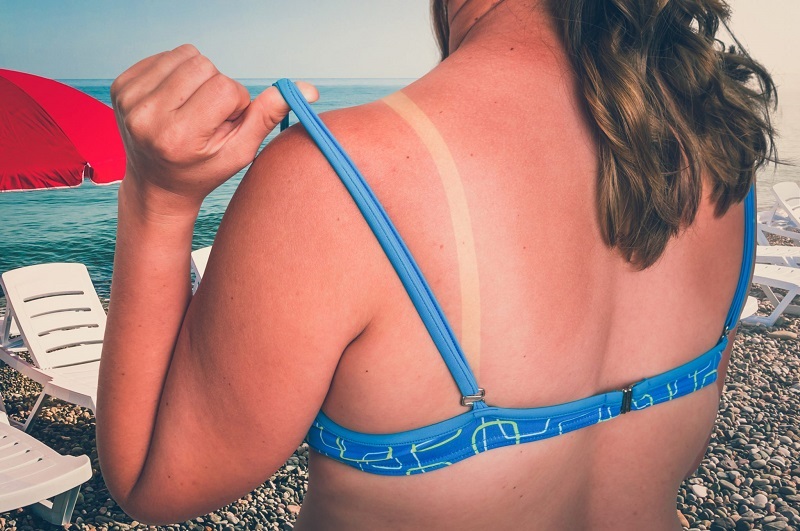Got Sunburn? Do These 5 Things for Some Relief

June 15, 2020
Sunburn can be a painful reminder that we’ve spent too much time in the sun. While some sunburns can be minor, others can be very painful and dangerous to your health.
“Sunburn can be dangerous and have life-long consequences,” says Robin Ashinoff, M.D. a board certified dermatologist with Hackensack Meridian Medical Group. “The strong ultraviolet (UV) rays from the sun can cause permanent damage to your skin, accelerate skin aging and increase your risk for skin cancer in your lifetime,” adds Dr. Ashinoff.
If you’ve spent a few too many hours in the sun, there are a few things you can do to find some relief:
Hydrate yourself and your skin
Staying hydrated both inside and out is important when recovering from a sunburn. The burn disrupts the barrier function of the skin and may allow heat and moisture to leave through the skin. Also, sweating in the heat can further dehydrate you and cause headaches.
Make sure to drink plenty of water after getting a sunburn and apply aloe or moisturizers to the affected area often to restore the skin’s barrier function.
Stay cool
Keep your skin and body cool by applying cold compresses to the affected skin. Another easy way to stay cool is to use “cooling towels” typically found at most sporting goods stores. The reusable cloth gets cool when wet and helps move heat away from the skin. You can reactivate it by simply rinsing in water.
Manage pain and inflammation
If you realize early that you have allowed yourself to get a sunburn, taking 2 aspirin within the first 12 hours is a great anti-inflammatory and may help limit the extent of the sunburn. Topical anti-inflammatories such as corticosteroid ointments can also help limit the extent of the burn if applied very early. As always, check with your doctor before taking any new medication.
Leave blisters alone
If any blisters form, leave them alone. Breaking a blister can slow your healing and increase your risk for infection. If needed, lightly cover blisters with gauze or loose cotton clothing. Talk to your doctor if blisters are severe or cover a large portion of your body.
Wear SPF clothing and sunscreen
You should do everything you can to prevent future sunburn, especially on skin that’s recently been damaged. Learn more about choosing the right sunscreen.
Signs you should get care for your sunburn:
Sunburn can at times be severe and cause some worrying symptoms. If you have any of the following symptoms*, you should talk to your doctor right away, says Dr. Ashinoff:
- Fever
- Vision problems
- Severe pain
- Blisters that have become infected
- Nausea and vomiting
*This list is not all inclusive. Please consult your medical provider for any other symptoms that are severe or concerning.
Next Steps & Resources:
- Meet our expert: Robin Ashinoff, M.D.
- To make an appointment with a health care provider near you, call 800-822-8905 or visit our website.
The material provided through HealthU is intended to be used as general information only and should not replace the advice of your physician. Always consult your physician for individual care.